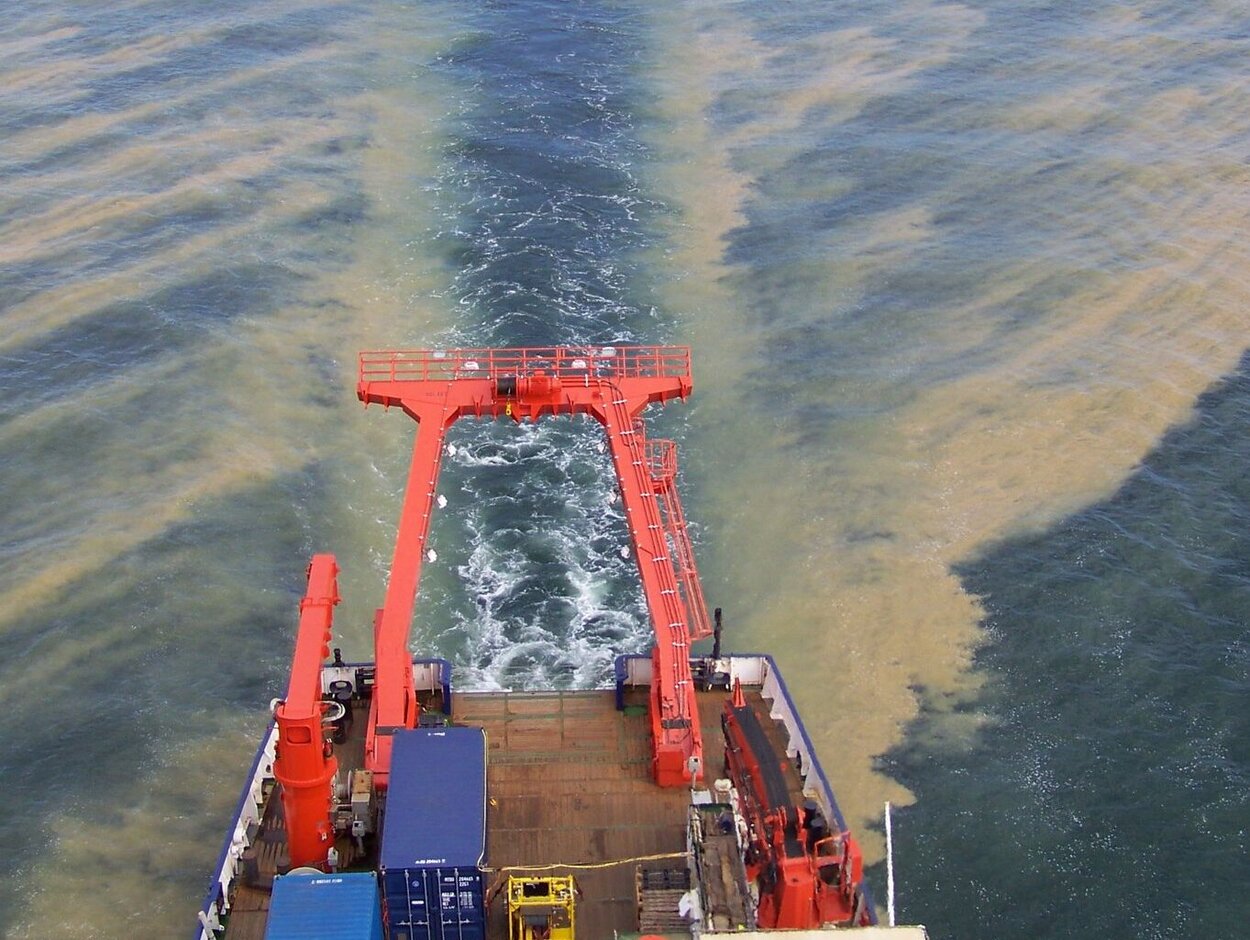Blue-green algae blooms, as the mass proliferation of long-filament cyanobacteria is commonly known, cover huge areas in the central Baltic Sea in summer. For beach tourists, they are mostly just unpleasant. For cod, they trigger a serious development: "The phytoplankton of the central Baltic Sea has changed dramatically over the last three decades. It is increasingly dominated by blue-green algae blooms in summer," says Markus Steinkopf, marine biologist at the Leibniz Institute for Baltic Sea Research Warnemünde (IOW) and lead author of a study on food web changes in the Baltic Sea that has now been published in the journal Ecology and Evolution. The triggers are the higher water temperatures caused by climate change and the still excessive nutrient load in the Baltic Sea. Both factors favour blue-green algae over other phytoplankton - and cause that the food web has lengthened to such an extent that 90 percent less energy reaches the Baltic cod.
In most areas of the world, including the western Baltic Sea, the cod food chain has four stages: Phytoplankton, zooplankton or mussels, crustaceans and fish such as herring and sprat, and cod. "Western Baltic cod feed mainly on the common shore crab, which lives on the bottom. Eastern cod are different. They are primarily fish eaters and hunt herring and sprat in the open water," says Dr Uwe Krumme, co-author of the study from the Thünen Institute of Baltic Sea Fisheries. However, this fish-heavy diet now has an impact on the position of the Baltic cod in their food web - with fatal consequences for stock development.
The investigations of the research teams led by Markus Steinkopf at the IOW and the Thünen Institute show that a fifth stage in the food web has emerged in the blue-green algae-polluted central Baltic Sea. "Due to their shape and size, filamentous blue-green algae cannot be eaten by the small crustaceans of the zooplankton, which otherwise occupy the next position after the phytoplankton in marine food webs," explains Steinkopf. Instead of continuing to eat a vegetarian diet, the zooplankton switches to a carnivorous diet. It now feeds on microbes, which in turn live off the excretions or decomposition products of the blue-green algae. The change affects the food web of the eastern Baltic cod so significantly because the blue-green algae are multiplying so massively in its habitat. In the food web of the western Baltic cod stock, blue-green algae are not relevant.
"This creates a complete additional food web level at the base of the food pyramid, which inevitably leads to high energy loss in the animals at downstream food web positions," says Natalie Loick-Wilde, also co-author of the study and a specialist in isotope-based food web analysis at the IOW. What consequences this has for the energy supply of higher organisms was previously largely unknown.
Marine phytoplankton is the energy supplier for all marine ecosystems: These tiny algae floating in seawater use photosynthesis to bind energy in the form of biomass, which is then passed on step by step in the marine food webs. How much energy reaches the different organisms depends on the position they occupy in the food web. Around 90 per cent of the energy is lost from one level to the next. The more levels a food web has, the less energy reaches the creatures in the highest positions. In the marine environment, predatory fish such as cod occupy this top position.
As climate change and nutrient pollution are not only changing the food webs in the Baltic Sea, scientists assume that lenghtened food webs could become a global problem. According to this study, one thing is certain for eastern Baltic cod: if the nutrient regime does not improve, the stock is unlikely to recover.







